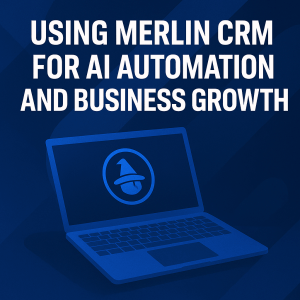Artificial Intelligence (AI) has evolved from a futuristic concept to a powerful tool that is reshaping industries across the globe. As an experienced IT entrepreneur, I’ve witnessed firsthand the transformative potential of AI in businesses of all sizes. Whether you’re a startup or an established enterprise, integrating AI can significantly enhance your operations, improve customer satisfaction, and drive growth. However, the journey to successful AI integration is complex and requires a strategic approach. This article will guide you through the key steps to effectively incorporate AI into your business.
1. Understand the Value of AI in Business
Before diving into the integration process, it’s essential to grasp the value that AI brings to the table. AI can streamline processes, improve decision-making, enhance customer experiences, and open up new revenue streams. For example:
- Automation: AI can automate routine tasks, freeing up human resources for more strategic work.
- Data Analysis: AI algorithms can analyze large datasets faster and more accurately than humans, providing insights that drive better business decisions.
- Customer Interaction: AI-powered chatbots and virtual assistants can handle customer inquiries 24/7, improving service levels and enhancing customer satisfaction.
- Predictive Analytics: AI can forecast trends, helping businesses to anticipate market changes and adjust strategies accordingly.
2. Identify Areas for AI Integration
Not every aspect of your business will benefit from AI. Start by identifying the areas where AI can add the most value. Consider the following:
- Customer Service: AI chatbots can handle common customer queries, allowing your human agents to focus on more complex issues.
- Marketing: AI can help personalize marketing efforts by analyzing customer data and predicting behaviors.
- Operations: AI can optimize supply chains, manage inventories, and automate workflows.
- Sales: AI-driven CRM systems can analyze customer interactions and suggest the best strategies for closing deals.
3. Develop a Clear AI Strategy
Integrating AI into your business requires a well-defined strategy. This strategy should align with your overall business goals and include the following components:
- Objective Setting: What do you hope to achieve by integrating AI? Whether it’s improving efficiency, reducing costs, or enhancing customer satisfaction, your objectives will guide your AI initiatives.
- Technology Assessment: Evaluate the AI technologies that align with your business needs. This could include machine learning, natural language processing, computer vision, or robotics.
- Resource Allocation: Determine the budget, time, and personnel needed to implement AI. This includes hiring or training staff with AI expertise.
- Risk Management: Identify potential risks, such as data security issues or ethical concerns, and develop strategies to mitigate them.
4. Choose the Right AI Tools and Platforms
The success of your AI integration depends on selecting the right tools and platforms. Consider the following when making your choice:
- Scalability: Choose AI tools that can scale with your business as it grows.
- Compatibility: Ensure that the AI tools integrate smoothly with your existing systems and data infrastructure.
- User-Friendliness: Select tools that are easy for your team to use, even if they don’t have a deep technical background.
- Vendor Reputation: Work with reputable AI vendors who offer robust support and regular updates.
Some popular AI platforms include:
- Google AI: Offers a wide range of AI tools and APIs for various applications.
- Merlin AI: The first CRM based on AI, offers AI based automations, AI training, and customer relationship building.
- Microsoft Azure AI: Provides AI services for building, training, and deploying models.
- IBM Watson: Known for its advanced natural language processing capabilities.
- Amazon SageMaker: A comprehensive platform for building, training, and deploying machine learning models.
5. Build or Source AI Talent
AI integration requires specialized skills. You have two main options:
- Hiring In-House Experts: Build a team of data scientists, AI engineers, and machine learning experts who can develop and manage AI solutions.
- Outsourcing to AI Specialists: If hiring a full-time team is not feasible, consider outsourcing AI development to specialized firms or freelancers. This can be a cost-effective way to access high-level expertise.
6. Pilot AI Projects Before Full-Scale Deployment
Before rolling out AI across your entire business, start with pilot projects. This allows you to test AI applications in a controlled environment and measure their impact. Use pilot projects to:
- Evaluate Performance: Assess how well the AI solution meets your objectives.
- Identify Challenges: Uncover any technical or operational challenges that need to be addressed before full-scale implementation.
- Gather Feedback: Collect feedback from employees and customers to refine the AI solution.
7. Ensure Data Readiness
AI systems rely on data to function effectively. Therefore, data readiness is crucial for successful AI integration. Steps to ensure data readiness include:
- Data Cleaning: Ensure that your data is clean, accurate, and free of duplicates or errors.
- Data Integration: Consolidate data from different sources into a unified format that AI systems can process.
- Data Security: Implement robust security measures to protect sensitive data from breaches or misuse.
- Compliance: Ensure that your data practices comply with relevant regulations, such as GDPR or CCPA.
8. Address Ethical and Privacy Concerns
AI technology raises important ethical and privacy issues that businesses must address. To build trust with customers and stakeholders, consider the following:
- Transparency: Be transparent about how AI is used in your business, particularly in customer interactions.
- Bias Mitigation: Ensure that your AI systems are free from bias and do not discriminate against any group.
- Privacy Protection: Implement strict data privacy policies and ensure that AI systems comply with these standards.
- Accountability: Establish clear lines of responsibility for AI decisions and outcomes.
9. Measure and Optimize AI Performance
After deploying AI, it’s crucial to continuously measure its performance and make necessary adjustments. Key performance indicators (KPIs) to track include:
- Accuracy: How accurate are the AI’s predictions or outputs?
- Efficiency: Has AI improved the efficiency of your operations?
- Customer Satisfaction: Are customers more satisfied with your services post-AI integration?
- Return on Investment (ROI): Is the AI solution delivering a positive ROI?
Regularly review these KPIs and optimize your AI systems to ensure they continue to deliver value.
10. Foster a Culture of AI Adoption
Successful AI integration is not just about technology; it also requires a cultural shift within your organization. Foster a culture that embraces AI by:
- Educating Employees: Provide training and resources to help employees understand AI and its benefits.
- Encouraging Innovation: Create an environment where employees are encouraged to experiment with AI and suggest new applications.
- Leadership Support: Ensure that leadership is fully committed to AI adoption and provides the necessary resources and support.
Integrating AI into your business is a journey that demands careful planning, the right tools, and a commitment to continuous improvement. Understanding how to integrate AI into your business effectively involves following the steps outlined in this guide to harness AI’s power to drive innovation, enhance efficiency, and achieve your business goals. Keep in mind that AI is not a one-size-fits-all solution; it requires a tailored approach that aligns with your specific business needs and objectives. With the right strategy, AI can be a transformative force, opening up new opportunities and positioning your business for long-term success.








